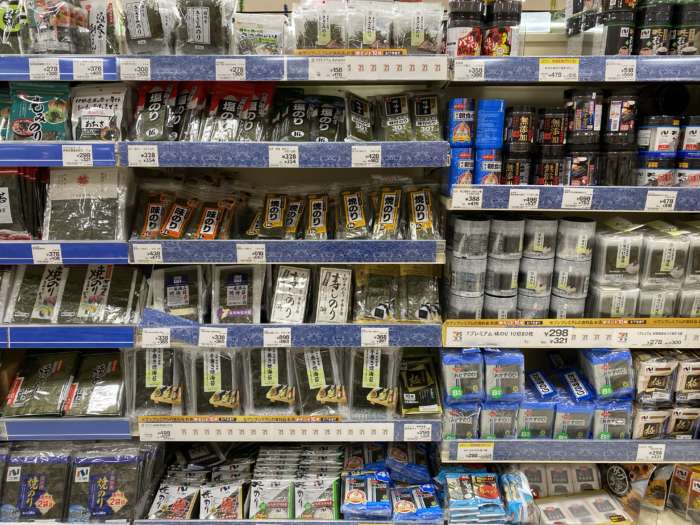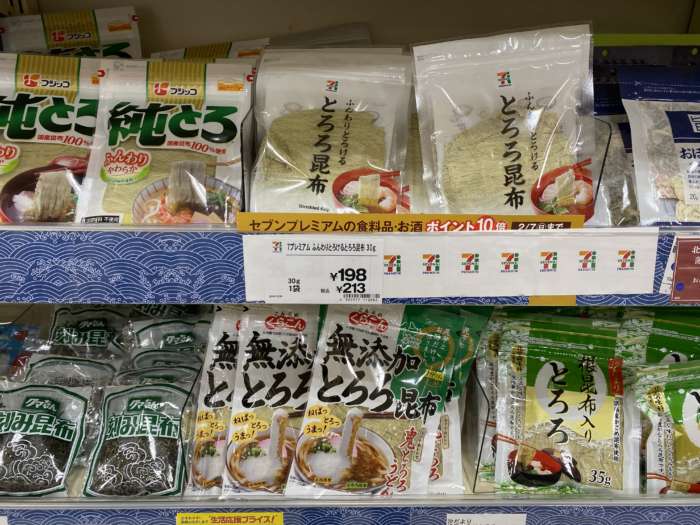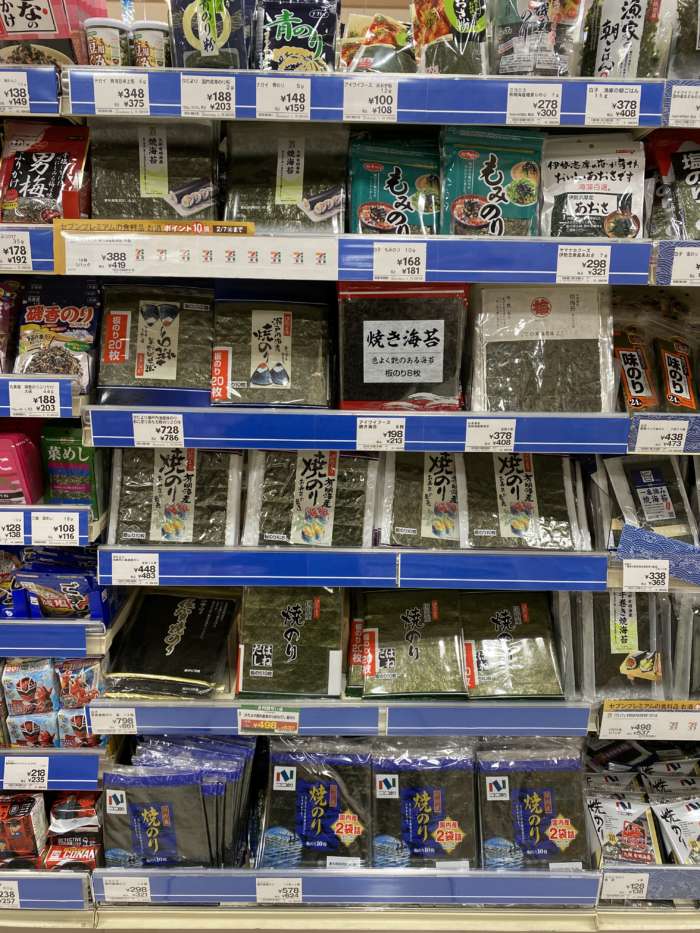Sea vegetables for Japanese Cooking

Sea vegetables, a name for aquatic vegetarian more accurate than that oft-used “seaweed” have a prominent place on the Japanese table and are valued for being rich in minerals and low in calories. Kaiso (海藻) is the generic term for sea vegetables; well-known sea vegetables found frequently on the Japanese table include Kelp (kombu 昆布), Laver (Nori 海苔), sea tangle (wakame わかめ), and hijiki (no English name). Wakame is often used in miso soups or on salads; Hijiki is often simmered in soy sauce and broth (dashi). Red algae (tengusa) is another major sea vegetables. It won’t be found on the dinner plate, but it is widely consumed – it’s the major components of agar agar (kanten), a low-calorie gelatin.
Kelp:
Kelp (Kombu 昆布) is the king of sea vegetables. It is an essential component in Dashi, the broth used in many Japanese dishes. A natural source for glutamic acid, it is rich in umami. Kombu thrives in the cool, mineral-rich waters surrounding Hokkaido, Japan’s northernmost island.
Some Kombu products (not the Kombu used in dashi) include:
Komochi Kombu : Kombu layered with herring eggs.
Kombu cha : Kombu that has been dried and crushed into a powder; most often used for tea, soup stocks, or for thickening non-oil salad dressings.
Musubi Kombu : Knots of Kombu, often found in fish cake stew. (Oden)
Oboro : Shaved Kombu, used for soups Tororo : Shaved Kombu, used in soups and wrapped around rice and other items.

Laver:
Laver (Nori 海苔) is toasted and most often found surrounding roll sushi. 80% of Japan’s nori is harvested in the Ariake Bay and Seto Naikai in southern Japan. Before eating, nori may be warmed slightly over low heat to bring out its aroma.
Some nori products include:
Aonori: Green laver that has been dried and flaked; used as a topping on food such as okonomiyaki, Japanese savory pancake.
Aosa: Green laver similar to aonori.
Ajitsuke nori: Laver seasoned with soy sauce and mirin; popular at breakfast.
Mominori: Shredded bits of ajitsuke nori; often used as a garnish over noodles.
Yaki nori: Toasted nori, used for rolled sushi

Memo :
1. Are you looking for Japanese cookbooks and kitchenwares etc? Visit YJC store on Amazon!
2. Would you like to cook many more recipes? Download Free recipe app from here! “Recipe by YJC”
* Reference of this article : Food Sake Tokyo (The Terroir Guides)










